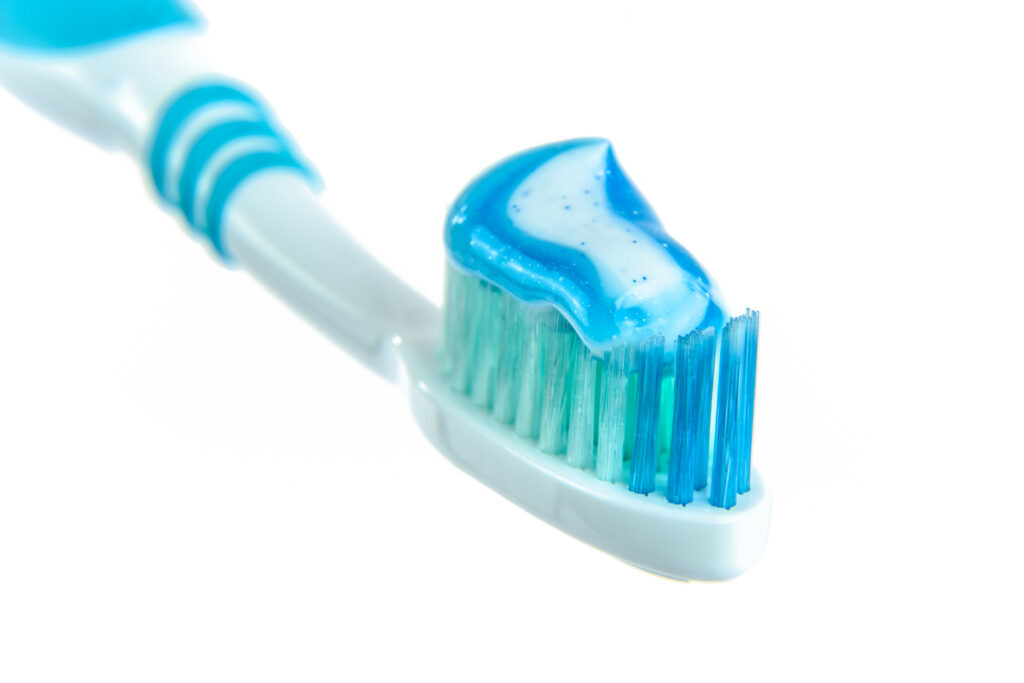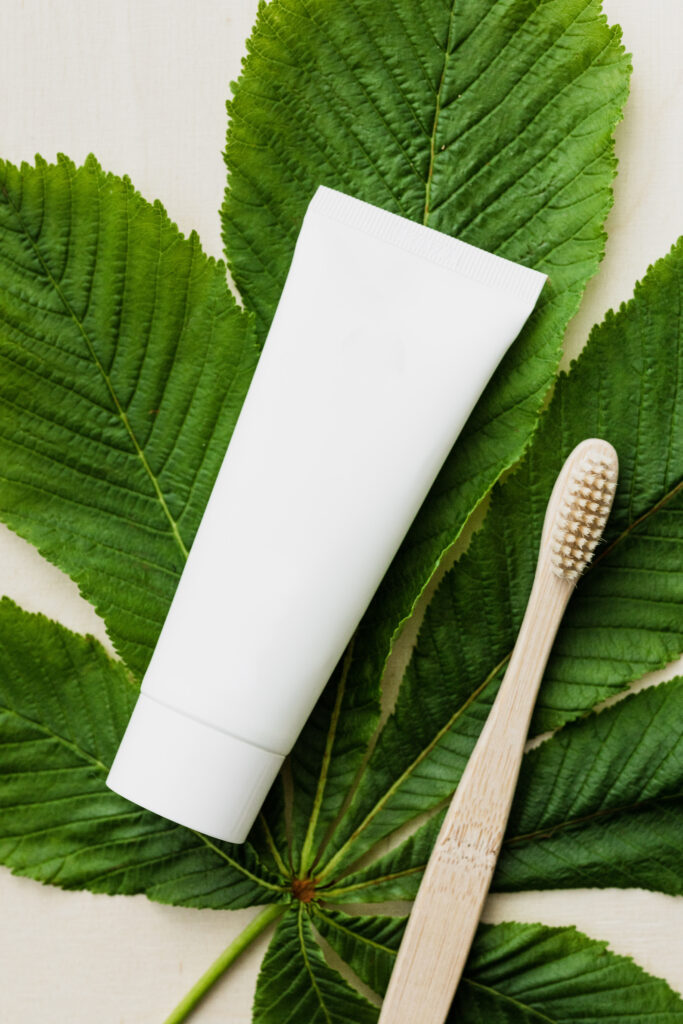The oral care industry has seen a significant rise in the popularity of natural and organic toothpaste options. As individuals become more conscious of the ingredients they put in their bodies, they are seeking toothpaste products that align with their values for a more natural and holistic approach to oral health. However, the term “natural” remains subjective, and there are no precise regulations governing toothpaste formulations. Dentists, though divided on the use of fluoride, continue to recommend it for its effectiveness in cavity prevention. Natural toothpaste has gained traction for reasons such as reducing sensitivity, alleviating canker sores, and minimizing the use of artificial ingredients. With a growing market demand, several natural toothpaste brands, including Tom’s of Maine, Hello, Dr. Bronner’s, TheraNeem, Risewell, Jason, Cleure, and Revitin, have emerged as recommended options by dental professionals.
Why Natural and Organic Toothpaste is on the Rise

Increasing consumer awareness
With the increasing focus on health and wellness, consumers are becoming more aware of the ingredients in their oral care products. Natural and organic toothpaste options are gaining popularity as consumers become more conscious of the potential harms associated with synthetic and artificial ingredients.
Growing concerns about artificial ingredients
Many people are starting to question the safety and long-term effects of artificial ingredients in conventional toothpaste. This concern has led to a shift in consumer preferences towards natural and organic options, which are seen as safer alternatives.

Desire for safer and more sustainable options
Consumers are not only seeking safer alternatives for their oral care, but they also want products that are environmentally friendly. Natural and organic toothpaste options often come in eco-friendly packaging and are produced using sustainable and ethical sourcing practices, making them attractive options for environmentally conscious consumers.
Understanding Natural and Organic Toothpaste
Subjectivity of the term ‘natural’
The term “natural” can be subjective and vary in meaning depending on who is using it. In the context of toothpaste, it generally refers to products that use naturally derived ingredients and avoid synthetic chemicals.
Absence of precise regulations for toothpaste
Unlike other industries, toothpaste does not have precise regulations defining what can be labeled as “natural” or “organic.” This lack of regulation makes it challenging for consumers to navigate the market and understand the true nature of the products they are purchasing.
Differentiating natural and organic toothpaste
While the terms “natural” and “organic” are often used interchangeably, they have distinct differences. Natural toothpaste refers to products made from natural ingredients, while organic toothpaste is made from natural ingredients that have been grown without the use of synthetic pesticides or fertilizers.

Controversy Surrounding Fluoride
Fluoride’s role in cavity prevention
Fluoride has long been recommended by dentists for its role in preventing tooth decay and cavities. It strengthens tooth enamel, making it more resistant to acid attacks from bacteria and sugars in the mouth.
Debate over the safety of fluoride
Despite its benefits, there is ongoing debate over the safety of fluoride. Some individuals are concerned about potential side effects, such as fluorosis or neurological effects. However, the overwhelming majority of scientific evidence supports the safety and efficacy of fluoride when used as directed.
Conventional toothpaste vs. fluoride-free natural options
For those who prefer to avoid fluoride, there are fluoride-free natural toothpaste options available. However, it’s important to note that fluoride-free toothpaste may not provide the same level of cavity prevention and protection as conventional fluoride-containing toothpaste.
Benefits of Natural Toothpaste
Effective for sensitive teeth and gums
Many natural toothpaste options are formulated with ingredients that are gentle on sensitive teeth and gums. They can help provide relief from tooth sensitivity and gum inflammation, making them suitable for individuals with dental sensitivity issues.
Reducing the risk of canker sores
Certain artificial ingredients found in traditional toothpaste, such as sodium lauryl sulfate (SLS), have been linked to the development of canker sores. Natural toothpaste options that exclude these harsh chemicals can help reduce the risk of canker sores for individuals who are prone to them.
Avoiding artificial ingredients and harsh chemicals
One of the main reasons people choose natural toothpaste is to avoid artificial ingredients and harsh chemicals. Natural toothpaste options often utilize plant-based extracts, essential oils, and natural abrasives for effective cleaning without the use of synthetic chemicals.
Recommended Natural Toothpaste Brands
Tom’s of Maine
Tom’s of Maine is a well-known brand that offers a wide range of natural toothpaste options. Their products are made with naturally derived ingredients and are free from artificial preservatives, flavors, and colors.
Hello
Hello is another popular natural toothpaste brand that focuses on using high-quality ingredients. Their toothpaste is vegan, cruelty-free, and made without artificial sweeteners, dyes, or preservatives.
Dr. Bronner’s
Dr. Bronner’s is a trusted brand known for its commitment to using organic and fair-trade ingredients. Their toothpaste is made with organic coconut oil and other natural ingredients, providing a refreshing and effective oral care experience.
TheraNeem
TheraNeem offers a range of natural toothpaste options that are formulated with neem oil and other botanical extracts. Neem oil has antimicrobial properties that can help promote healthy gums and maintain oral hygiene.
Risewell
Risewell toothpaste is made with a blend of natural ingredients including aloe vera, coconut oil, and xylitol. Their toothpaste is free from fluoride, SLS, artificial flavors, and harsh chemicals.
Jason
Jason Natural toothpaste is made from carefully selected natural ingredients such as tea tree oil, cinnamon, and clove. Their toothpaste options are free from artificial colors, flavors, and sweeteners.
Cleure
Cleure offers a range of hypoallergenic natural toothpaste options that are free from common allergens and harsh chemicals. Their toothpaste is suitable for individuals with sensitive teeth or those with allergies.
Revitin
Revitin toothpaste is formulated with natural enzymes and antioxidants that support a healthy oral microbiome. Their toothpaste is free from fluoride, SLS, and artificial additives.
Ingredients to Look For in Natural Toothpaste
Plant-based extracts and essential oils
Natural toothpaste often incorporates plant-based extracts and essential oils that provide additional oral health benefits. Calendula, myrrh, and tea tree oil are commonly used for their anti-inflammatory and antibacterial properties.
Non-artificial sweeteners
Natural toothpaste options typically use non-artificial sweeteners such as xylitol or stevia. These sweeteners provide a pleasant taste without the potential harmful effects associated with artificial sweeteners like saccharin or aspartame.
Natural abrasives for gentle cleaning
Traditional toothpaste often contains synthetic abrasives such as silica or calcium carbonate. Natural toothpaste opts for gentler abrasives like baking soda or hydrated silica, which offer effective cleaning without being overly abrasive to tooth enamel.
Common Misconceptions about Natural Toothpaste
Natural toothpaste is less effective
There is a common misconception that natural toothpaste is less effective than conventional toothpaste. However, many natural toothpaste options have been clinically proven to provide effective cleaning, cavity prevention, and gum health benefits.
Natural toothpaste doesn’t taste good
Some individuals may assume that natural toothpaste doesn’t taste as good as conventional toothpaste due to the absence of artificial flavors. However, natural toothpaste brands have developed a wide range of flavors using natural ingredients that provide a refreshing and enjoyable brushing experience.
Natural toothpaste is more expensive
While some natural toothpaste options may be priced slightly higher than conventional toothpaste, there are also affordable options available. As the demand for natural toothpaste grows, more affordable brands are entering the market, making natural toothpaste accessible to a wider range of consumers.
Consumer Trends in the Oral Care Industry
Preference for eco-friendly packaging
Consumers are increasingly concerned about the environmental impact of packaging waste. They are looking for oral care products that come in recyclable or biodegradable packaging and support sustainable packaging practices.
Growing demand for cruelty-free products
Animal testing in the oral care industry has faced criticism from consumers who prioritize cruelty-free products. To meet this demand, many natural toothpaste brands proudly display cruelty-free certifications, assuring consumers that their products are not tested on animals.
Shift towards sustainable and ethical sourcing
Consumers are becoming more conscious of the environmental and social impact of the ingredients used in their oral care products. They are seeking toothpaste brands that prioritize sustainable sourcing practices and support fair trade initiatives.
Marketing and Advertising Strategies
Highlighting natural and organic ingredients
Natural and organic toothpaste brands often emphasize their use of natural ingredients to attract consumers. They highlight the absence of artificial colors, flavors, and preservatives, appealing to those who are looking for a more natural and healthier alternative.
Emphasizing oral health benefits
Natural toothpaste brands promote their products’ oral health benefits, such as cavity prevention, gum health, and sensitivity relief. They leverage scientific research and clinical studies to demonstrate the effectiveness of their natural formulations.
Promoting eco-consciousness and sustainability
Many natural toothpaste brands use their marketing campaigns to showcase their commitment to eco-consciousness and sustainability. They highlight their use of recyclable or biodegradable packaging, sustainable ingredient sourcing, and support for environmental initiatives.
Future Outlook for Natural and Organic Toothpaste
Continued growth and market expansion
The demand for natural and organic toothpaste is expected to continue growing as consumers become more conscious of the potential harms associated with synthetic and artificial ingredients. This growth will likely lead to an expansion of product offerings and increased competition in the market.
Advancements in natural toothpaste formulations
As research and development in oral care technology advance, natural toothpaste formulations are likely to become even more effective and comparable to conventional toothpaste options. This will further attract consumers who are seeking natural alternatives without sacrificing effectiveness.
Potential regulatory developments
With the increasing demand for natural and organic toothpaste, there is a possibility of regulatory developments in the future. Establishing clear guidelines and regulations for labeling natural and organic toothpaste products can provide consumers with more transparency and confidence in the products they purchase.
